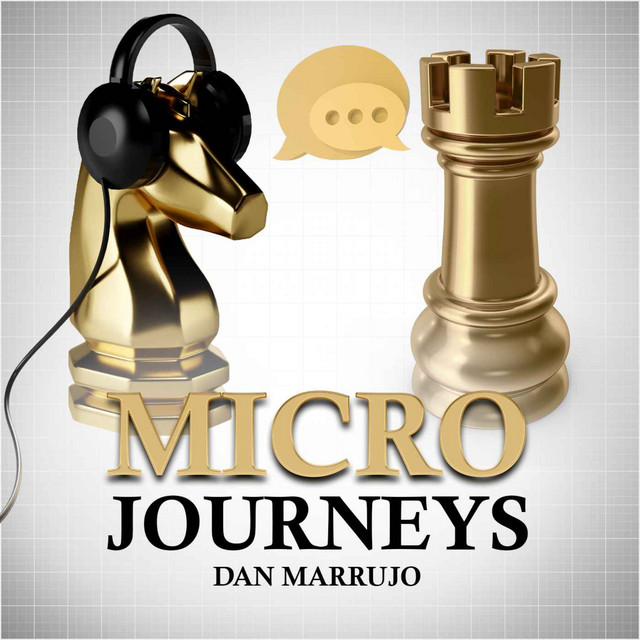MICRO JOURNEYS PODCAST

About Dan Marrujo
Daniel Marrujo is a former Chief Strategy Officer and former Director of the Office of Research and Technology Applications (ORTA) at the Defense Microelectronics Activity (DMEA).
Mr. Marrujo began his career at Raytheon Missile Systems in Tucson, AZ., developing missile guidance systems for their advanced programs. He then moved to DMEA, in his hometown of Sacramento, CA., working for the Trusted Integrated Circuit (IC) program office. In conjunction with working on the Trusted IC program, he began working towards the development of DMEA’s reliability capabilities and was selected to lead the National High Reliability Electronics Virtual Center (HiREV).
Mr. Marrujo also established the NRO’s VS&E program which has executed a number of solutions protecting National Security. As a subject matter expert, he has provided his technical expertise in multiple DARPA, IARPA and National Security Space programs. His focus areas are Microelectronics Obsolescence, State of the Art Microelectronics Acquisition, State of the Practice Microelectronics Sustainment, Advanced Packaging, Supply Chain Risk Management, Semiconductor Reliability, Semiconductor Reverse Engineering and Semiconductor Radiation Effects.
In 2016, Mr. Marrujo was selected as DMEA’s Chief Strategy Officer, directly supporting the DMEA directorate. In this position, Mr. Marrujo works with DMEA senior leadership to define and represent the integrated DMEA message and strategic path forward for future engagements.
Latest Episodes
Rory McInerney’s journey mirrors the rise of modern computing itself. From growing up in Ireland to becoming a senior leader at Intel during some of the most transformative decades in semiconductor history, Rory shares how curiosity, risk-taking, and timing shaped a 30-year career at the center of global technology. Along the way, he reflects on immigration, innovation, and what it truly means to build something that lasts.
In this episode, Rory dives deeper into the evolution of semiconductors—from memory chips and personal computers to data centers, cloud computing, and today’s AI-driven world. He offers an insider’s perspective on Intel’s growth, the challenges of scaling advanced manufacturing, and why semiconductor supply chains have become a matter of national security.
Ultimately, Rory’s story highlights a core lesson: meaningful technological progress is rarely driven by a single breakthrough, but by decades of persistence, collaboration, and the willingness to confront hard constraints head-on.
In this episode of Micro Journeys, host Daniel Marrujo sits down with David Harris to explore how endurance, curiosity, and systems-level thinking shaped a career that spans elite athletics, financial regulation, global markets, and emerging technology. From an unlikely start as a walk-on collegiate runner to leadership roles inside the SEC, NASDAQ, and the London Stock Exchange Group, Harris shares how persistence—and knowing when to adapt—became a recurring theme throughout his life.
The conversation dives deeper into Harris’s evolution from market structure and electronic trading into blockchain, data governance, and ultimately the founding of Manetu. As AI, automation, and data sharing accelerate, Harris unpacks a growing problem: sensitive data is being shared, copied, and used in ways that neither individuals nor organizations can fully see or control—especially as agentic AI systems begin making decisions on their behalf.
At its core, this episode presents a solution rooted in trust and control: treating data as a granular, permissioned asset, shared only when needed, for a specific purpose, and withdrawn when that purpose ends, so people, companies, and governments can safely operate in an increasingly automated world.
In this episode of Micro Journeys, Daniel Marrujo sits down with John Hill to explore a career shaped by curiosity, large-scale science, and the pursuit of understanding matter at its most fundamental level. From Hill’s early fascination with space and science in England to his leadership at Brookhaven National Laboratory, the conversation traces how passion, global ambition, and national-scale research converge to drive technological and scientific progress. Together, they unpack how national laboratories quietly underpin much of the innovation that fuels modern life.
The discussion dives deeply into the role Brookhaven plays in advancing synchrotron science, microelectronics, quantum computing, artificial intelligence, particle physics, and space radiation research. Hill explains how tools like the National Synchrotron Light Source II enable scientists to see inside materials at the atomic scale, non-destructively analyze microchips, and accelerate discoveries across biology, energy, and electronics, while also revealing how AI and quantum technologies are reshaping how science itself is done.
Ultimately, the episode reveals how Brookhaven’s mission bridges basic research and real-world impact: creating capabilities too complex for industry alone, transferring discoveries into the economy, and positioning the United States at the forefront of future technologies.
